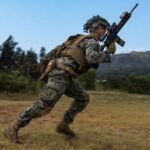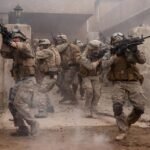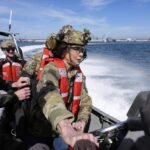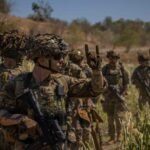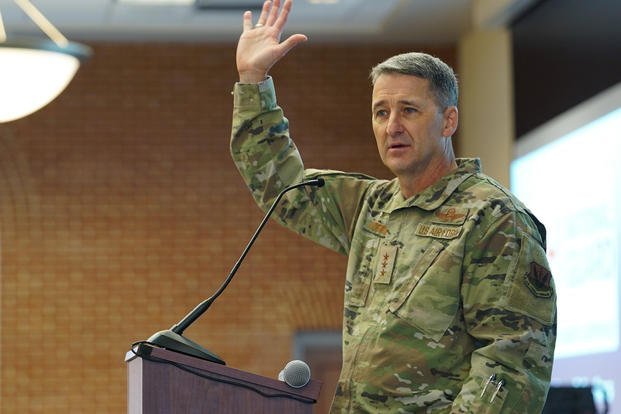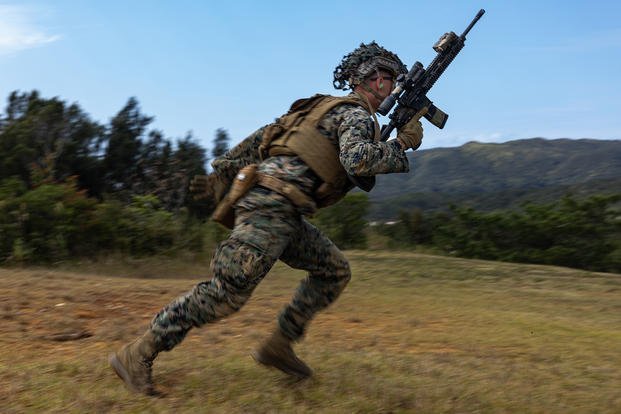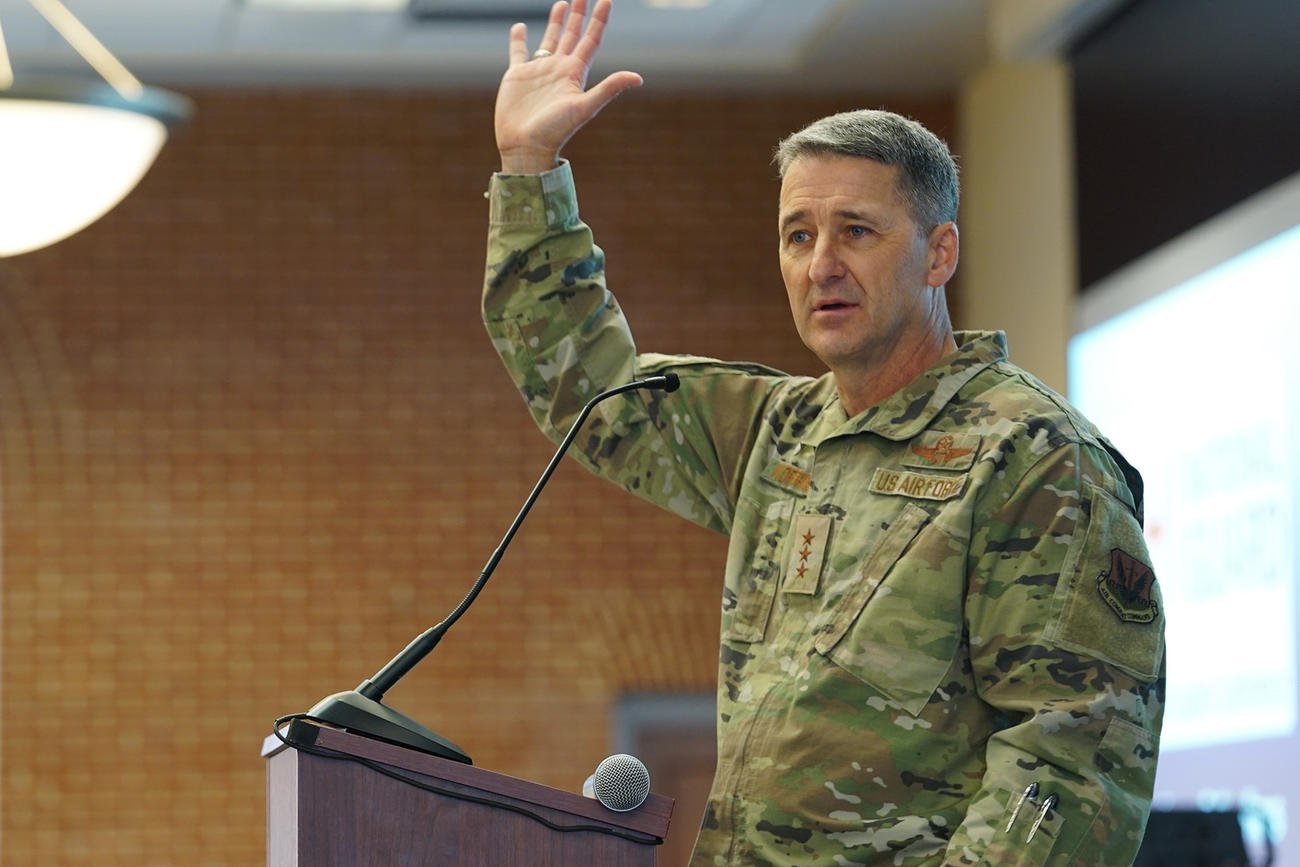
After more than a month of a leadership vacuum atop the National Guard, the general nominated to be the next chief of the National Guard Bureau took a key step forward Thursday as he testified before the Senate Armed Services Committee.
Lt. Gen. Steven Nordhaus, right now a top Air Force officer with the North American Aerospace Defense Command, breezed through a genial confirmation hearing before the committee, suggesting he could soon be confirmed to lead the National Guard Bureau. As the hearing wrapped, committee Chairman Jack Reed, D-R.I., told Nordhaus and Vice Adm. Alvin Holsey, the nominee to be U.S. Southern Command chief who also testified at the hearing, he hoped to approve their appointments with “diligence and speed.”
If confirmed, Nordhaus would take over leadership of the National Guard at a time when the service has been increasingly relied upon for a broad range of missions, some of which are far outside its normal scope. In addition to having to respond to natural disasters that are more frequent and more destructive because of climate change, the Guard has also been tapped by governors to fill labor shortages completely unrelated to military training such as school bus drivers and corrections officers.
Read Next: Air Force Looks to Add Telescopes on Sacred Hawaii Volcano as Outrage Continues over Fuel Spill
Sen. Roger Wicker, R-Miss., the ranking member of the committee, told Nordhaus that his most difficult task if confirmed could be balancing the “constant tension” between the Guard’s state and federal missions.
“The National Guard cannot be the solution to every local labor shortage,” Wicker said in his opening statement. “These decisions erode military readiness, and they improperly take service members away from their families and their civilian employment, not to mention their statutory mission.”
Several thousand Guardsmen also continue to help patrol the U.S.-Mexico border, a mission that previous National Guard Bureau chief Gen. Daniel Hokanson argued is hindering the Guard’s preparations for warfighting.
At his confirmation hearing Thursday, Nordhaus raised similar concerns.
“They’re not back home training for great power competition missions. They’re not back home with their families and their employers getting set up so that, the next time they’re asked to deploy overseas for a combat role, they have that spin for the National Guard,” Nordhaus said of the Guardsmen deployed to the border.
In written answers to the committee, Nordhaus also expressed concern about the operational tempo more broadly.
“For both the Army and Air National Guard, current recruiting and retention data indicate that the current operational tempo is not having a significant impact,” he wrote in answers to questions posed by the committee ahead of the hearing. “However, we remain cognizant of the stress that a high [operations tempo] has on National Guard service members seeking to balance military, civilian employment and family roles.”
The National Guard Bureau has been without a Senate-confirmed leader since the beginning of August, when Hokanson’s term expired and he retired. Lt. Gen. Jonathan Stubbs, director of the Army National Guard, has been serving as acting chief since the bureau’s vice chief position is also vacant. Previous vice chief Lt. Gen. Marc Sasseville retired in May, and a replacement has not been nominated.
Nordhaus was nominated by the White House only a week before Hokanson retired. The nomination also came just before the Senate went on a five-week summer recess, meaning this week was the first opportunity the Senate Armed Services Committee had to hold a hearing.
The leadership vacuum in the National Guard comes during the height of hurricane and wildfire season, when state governors are calling up their National Guards to respond to devastation wrought by the natural disasters. Leadership in the National Guard Bureau plays a key role in coordinating and communicating between national and state officials, and the chief sits on the Joint Chiefs of Staff.
With Nordhaus’ hearing now done, the committee will need to vote to advance the nomination, and the full Senate will need to approve it before he can assume the role as chief.
Related: National Guard Has New Acting Boss as Nominations Sit in Senate



